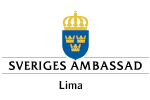![]() As Europe continues to be flooded by refugees fleeing from war torn countries, such as Syria, Iraq and Afghanistan it has led to a frantic search for solutions. One solution recommended in a New York Times article this week, Who’s Responsible for the Refugees?, highlights the the work of Peruvian economist Hernando de Soto as holding a key to solving the crisis long term.
As Europe continues to be flooded by refugees fleeing from war torn countries, such as Syria, Iraq and Afghanistan it has led to a frantic search for solutions. One solution recommended in a New York Times article this week, Who’s Responsible for the Refugees?, highlights the the work of Peruvian economist Hernando de Soto as holding a key to solving the crisis long term.
Many European countries are ill equipped to handle such an influx of refugees as the crisis puts pressure on their already struggling economies. Thus, the article written by Steve Hilton, a former advisor to British Prime Minister David Cameron, explores solutions to the root causes of the crisis rather than just treating the symptoms. Hilton states that the problem requires creating free societies with property rights and a market economy that people actually want to live, which is exactly what De Soto has advocated for decades.
Hilton states that the ideal number of refugees is zero. He says one way to achieve this is by looking at the work of De Soto and his institute in cataloging the ‘vast untapped value of the informal economy’ and states that if ‘these assets were formalized, people across the region could own property, grow businesses and develop the desire to stay’.
De Soto and the ILD have conducted in depth studies on unlocking the economic capability of the poor living in the informal economy around the world, including in MENA countries Egypt, Algeria and Tunisia. De Soto has always been a strong advocator that the most important constraints to development of the poor arise from their inability to build and protect capital. Many world leaders’ have personally called upon De Soto and the ILD over the years to consult them on their informal economy.
Here is the complete excerpt about De Soto from the article:
‘The economist Hernando de Soto, backed in part by the United States Agency for International Development, has cataloged the vast untapped value of the informal economy in countries like Egypt, Tunisia and Algeria. If these assets were formalized, people across the region could own property, grow businesses and develop the desire to stay and build stable societies. We should put pressure on their rulers to implement the necessary legal reforms by cutting aid payments until they do it.’
Read the rest of the article on the New York Times website


